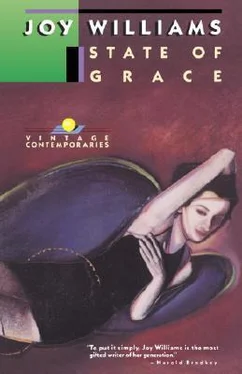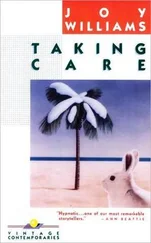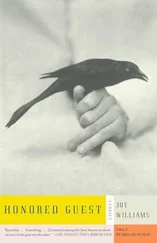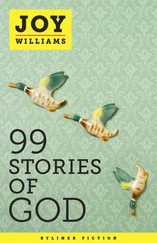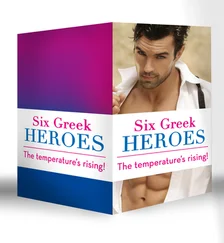Look, he said to me then, I’d like for you to stay with me awhile. I have a place. He talks to me in darkness. My hips rub on grass. I have everything for you, he says, or I can get is tomorrow. Tomorrow. Next month.
Grady.
I did not demur. I entered his life. Coma calling. Now Grady sits on the riverbank. The fire sparkles. He gives my belly one more caress. It’s sculpted and heavy as a wooden pear.
“Come to school with me today and at noon we’ll go to the beach,” he says. “We’ll swim. We’ll buy some bread and cheese. We’ll swim and eat and sleep.”
“At noon. Juste milieu . When the sun is up.”
“And so am I,” he says.
The fire burns. So do all of God’s children.
Grady enjoys going to classes. He wants to make a fine life for us. He works very hard. There is going to be the baby. He sees other babies. He sees a fantastic tree house on his beloved river. He will design it himself. He will build it himself. Inside it will be leather and wicker and aluminum and wood. We will have pet otters that will bring us fish. We will have lime and lemon and grapefruit and orange trees and ladybugs to eat the aphids. We will have a telescope and study the stars. We will have an herb garden. We will have a Land Rover and a De Tomaso Mangusta. We will live in our fantastic house. Then we will travel. We will get a motor sailer. Go to Greece. The Pacific. Go everywhere. Then we will return. Our children will be loving and handsome. The orchids will grow on the trees. Everything will always grow around us beautifully. We will always be in love.
Of course this is in the future.
I tell him, “Love, love, I have no future.” I say this. I say, “When they were casting the Weird of my life, that third sister was out on an apéritif.”
Naturally, he does not agree. There is the future of this day, for instance. I’ve promised him I’ll go to school today and I’ve dressed and I have. We are in town, going to school, but first we stop in a hardware store, for he has to buy a tool or two, for his Jaguar, for his class. I wander off to the seed bins. They’re lovely. St. Augustine, Argentine bahia, centipede, zoysia, Tiflawn bermuda. I plunge my hands into the bins. It’s wonderful. I worm my hands around, up to my elbows. Tiny slippery busy beads. A clerk comes up. He points to a sign. “They’ll have to be baked now,” he says angrily. “You’ve contaminated them.” Insulted, I buy fifteen pounds. I turn out my pockets. I give him every cent. “A good choice,” he says, handing me a sack. “Low maintenance. Will survive total neglect.” Grady’s at my side. He’s bought a picnic basket. He puts my sack inside it.
“It’s pasture grass,” he tells me as we leave.
“Let’s make a pasture!” I am so enthusiastic. Where will we plant it? Who will come to watch it grow? I imagine already friendly beasts following us down the street, birds and bees and grazing things. But I become weary. My feet lag. What a responsibility, this grass! What a burden! I have poisoned it. The man said so. I am so destructive. My hands are hatchets. Daddy had told me this. He’d said, AND WHERE THE SLAIN ARE THERE IS SHE. Job. He’d said, It’s happened and it’s ahead of you, forever and ever.
We enter the college grounds.
I sit down beneath a banyan tree though I only want to be back in the trailer or sitting in the Jaguar, at rest, resting. Grady kisses me good-by and enters the chemistry building. He turns before he opens the door, his hair all smacked askew with water, heartbreaking as a grebe, and waves at me. I wave back, grateful for his familiarity. He drops from sight into forestry and mathematics.
He has a theory for the animals, with which by equation the earth can be saved.
I have a malapropism or two.
The leaves on this tree are long as baseball bats. Many of the roots haven’t rooted yet but stick out stiff as wires, at eye-level, from the trunk. Everything’s so colorful and fecund. A bellowing order and thoughtful rhyme. Noah’s Ark. A path for every foot to trod. A trot for any taste. Students move heartily by with the faces of winning contestants. Everyone’s a winner here! The South is Cracker-Jax!
“Hello!” they cry. I blink.
“Hiyew,” a girl says cutely as a comic book. “Why we haven’t seen you for quite some time. My boyfriend’s sleeping in your bed.”
“O.K.!” I cry cheerfully. I am speaking too loudly. I know this girl. Debbie Dow. Before I’d gone off with Father five months ago and then immediately with Grady, five months ago, I had known this girl. A sister. With a pin and a barrette of hammered silver weighing down her head.
“Those your sheets?” the girl asks. “Or are they from the service? Better get yourself some new sheets when you come back. Are you coming back? Jean’s wearing your clothes. Half of them are in her closet now.”
Her teeth do not grow out of the gums but are perched there as though in afterthought. Other than this, the girl’s face is wealthy.
So many questions, so much news. “OK.!” I cry joyously.
“Those sheets certainly have had their lives,” the girl says. “Those pussycat sheets.”
I know this girl. I’ve seen her squatting for the soap. Rump bumpy as an ugly lemon. I know the boy as well. A baseball player on a scholarship. A pitcher with big ears. What’s all this talk about boys and beds? A whore is a deep ditch and a strange woman is a narrow pit. A youth’s a rictus and an aging man is ruinous. There’s no turnpike to love. Just snares and snaffles. I want to go back, back. But to what?
I will tell this girl instead. I will whisper in her ear’s veranda. The girl’s head tips expensively, from the barrette. She speaks first.
“There’s been some mail for you. One or two letters. I saw them just the other day but they were gone this morning. I suppose you picked them up?”
The girl seems to be shouting at me. From a distance. I look down at the ground, expecting to see a cheeping creek separating us, an unfordable crinkle in the earth. It’s almost there. There’s a plastic straw on the ground. I pick it up and put it in the new picnic basket. A straw’s as good as a cup. One never knows what the day will bring.
“Was that your daddy I saw you with? Down for Homecoming? Down for the water show?”
“Oh, but that was a long time ago,” I shout.
“Yes, but that was the last time I saw you,” the girl says confidently. “Why wasn’t that the Homecoming though? With our float winning and all? What a time Cloyd and I had! We fell asleep and the tide just about took us out.”
I think of replies. I discard them all.
“We had champagne in the House after the parade,” Debbie persists. “Why weren’t you there?”
“That certainly would have been the time to be there,” I agree.
“You bet!” squeals Debbie.
“We saw the parade,” I say.
“You and your daddy?”
“Pardon me?” I say.
“I find older men sort of frantic myself,” dimpled Deb confides.
“What a parade!” I exclaim.
Thousands and thousands of tissues stuffed into chicken wire.
“Better than the Rose Bowl,” Debbie ventures.
All that paper! Three thousand trees vanish from Big Cypress Swamp.
“The Toilet Bowl!”
The girl’s face is smooth and silly and kind. I am so exhausted now with all this conversation. I want to lie down and put my mouth on the grass. It is a beautiful day. Grady was right. Blue pours through the trees. And it is so still. I wear my bathing suit beneath my clothes. They are wrinkled and old, clothes that Daddy bought me, things I wore years ago when I was with him, walking across the brown crisp ground in the springtime. I try to blink my eyes. Someone’s rolled a stone across them. Why is this girl talking to me? Why does anyone ever begin anything when none of it can ever end?
Читать дальше
